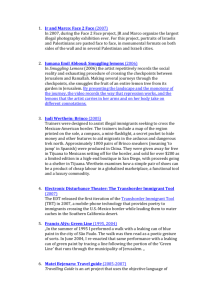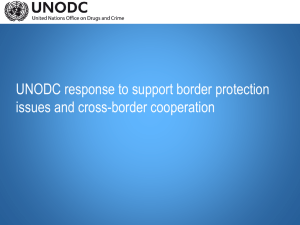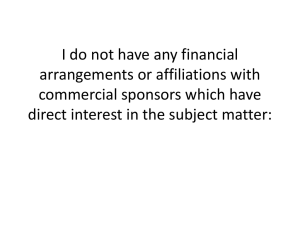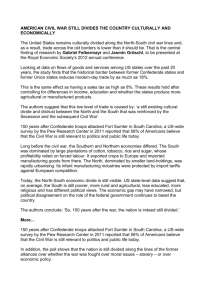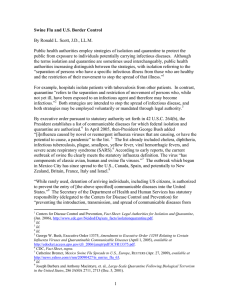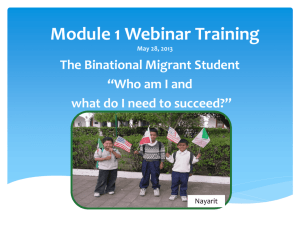Presentation Outline - United States
advertisement
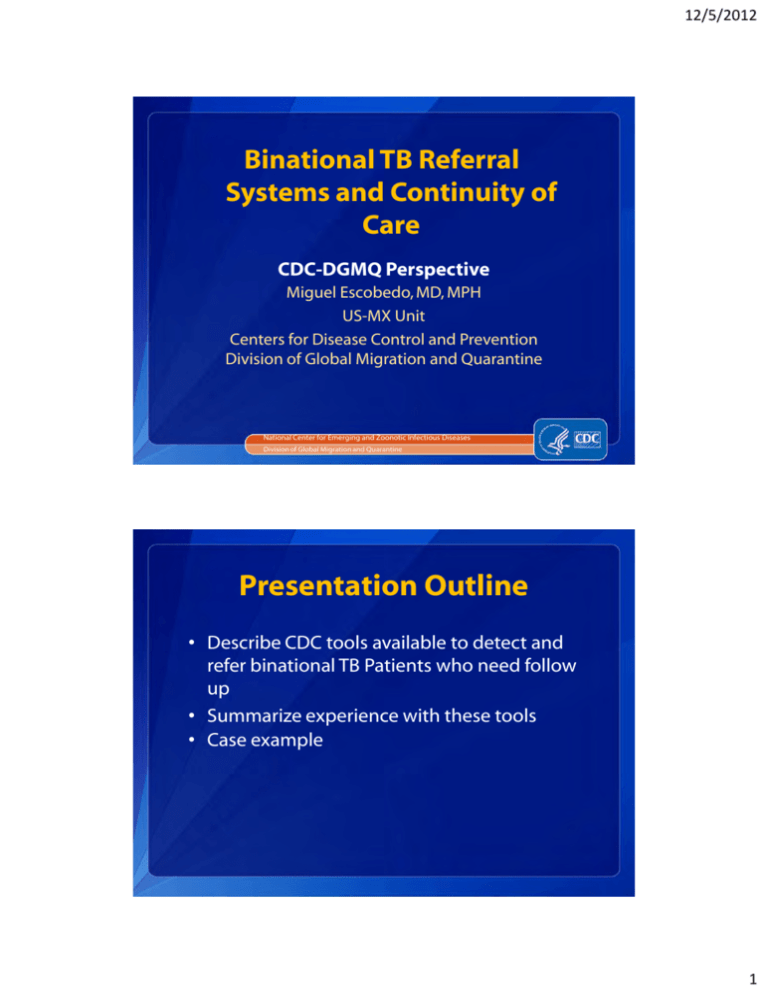
12/5/2012 Binational TB Referral Systems and Continuity of Care CDC-DGMQ Perspective Miguel Escobedo, MD, MPH US-MX Unit Centers for Disease Control and Prevention Division of Global Migration and Quarantine National Center for Emerging and Zoonotic Infectious Diseases Division of Global Migration and Quarantine Presentation Outline • Describe CDC tools available to detect and refer binational TB Patients who need follow up • Summarize experience with these tools • Case example 1 12/5/2012 Goals of Binational TB Referral and Case Management Strategy • Prevent TB treatment lapses and the development of drug resistance by: – Working with Health Departments to educate patients about the TB treatment process – Linking patients with the health system on the other side – Facilitating the exchange of clinical case information across systems in a confidential manner. – Use of established PH tools to detect and refer patients in need of treatment. Quarantinable Diseases* • • • • • • • • • Smallpox Cholera Plague Viral hemorrhagic fevers Infectious tuberculosis Yellow fever Diphtheria SARS Novel influenza virus (pandemic potential) * By Executive Order of the President, federal isolation and quarantine are authorized 2 12/5/2012 Travel Restrictions • State PH departments can request travel restrictions on individuals suspected of being infectious with a communicable disease • Requests coordinated with – CDC Division of Global Migration and Quarantine – Department of Homeland Security • 2 types: – Do Not Board List – Public Health Lookout List Public Health Border Lookout • Active at all international land ports of entry; Air, Sea, Land • Doesn’t necessarily restrict travel or entry in U.S. • Prompts a review of the individual’s communicable disease status before allowed to enter U.S. at Port of Entry (POE) – Enforced by Customs and Border Protection (CBP) – Quarantine station staff notified when individual is detected at the border – Cross reference with DHS Law Enforcement systems 3 12/5/2012 Criteria for PH Border Lookout • Infectious or at risk of rapid progression to becoming infectious • Individual is noncompliant with treatment OR unaware of their diagnosis, or can not be located • History of or intent to travel internationally Case Study Background • US Marshalls reports 35 y/o TB case, to be release to MX, no continuity of care plan • No legal PH control order by Co. Attorney • Rapid multi-agency collaboration results in successful Border Meet and Greet • Added to CDC PH Border LO List 3/30 • Issued one week of TB medication 4 12/5/2012 Case Study Follow up • Patient shows up to clinic in MX, but storms out after refusing DOT • Shows up to former work US site on 4/20 to seek employment • No show at PH TB clinic in the US • Patient gets picked up by local LE for theft • Possible ICE referral for re-repatriation Case Study Issues to Consider • Issuing medication without medial supervision • Successful meet and greet does not ensure continuity of care • Evaded border crossing detection despite Border LO • Legal control order ownership 5 12/5/2012 TB does not respect borders • A missed binational TB case becomes a foreign born case • A missed foreign born case creates future foreign born and native born cases • Collaboration offers the best opportunity to detect and treat patients in an accepting environment, no matter where they come from Thank you! 6


